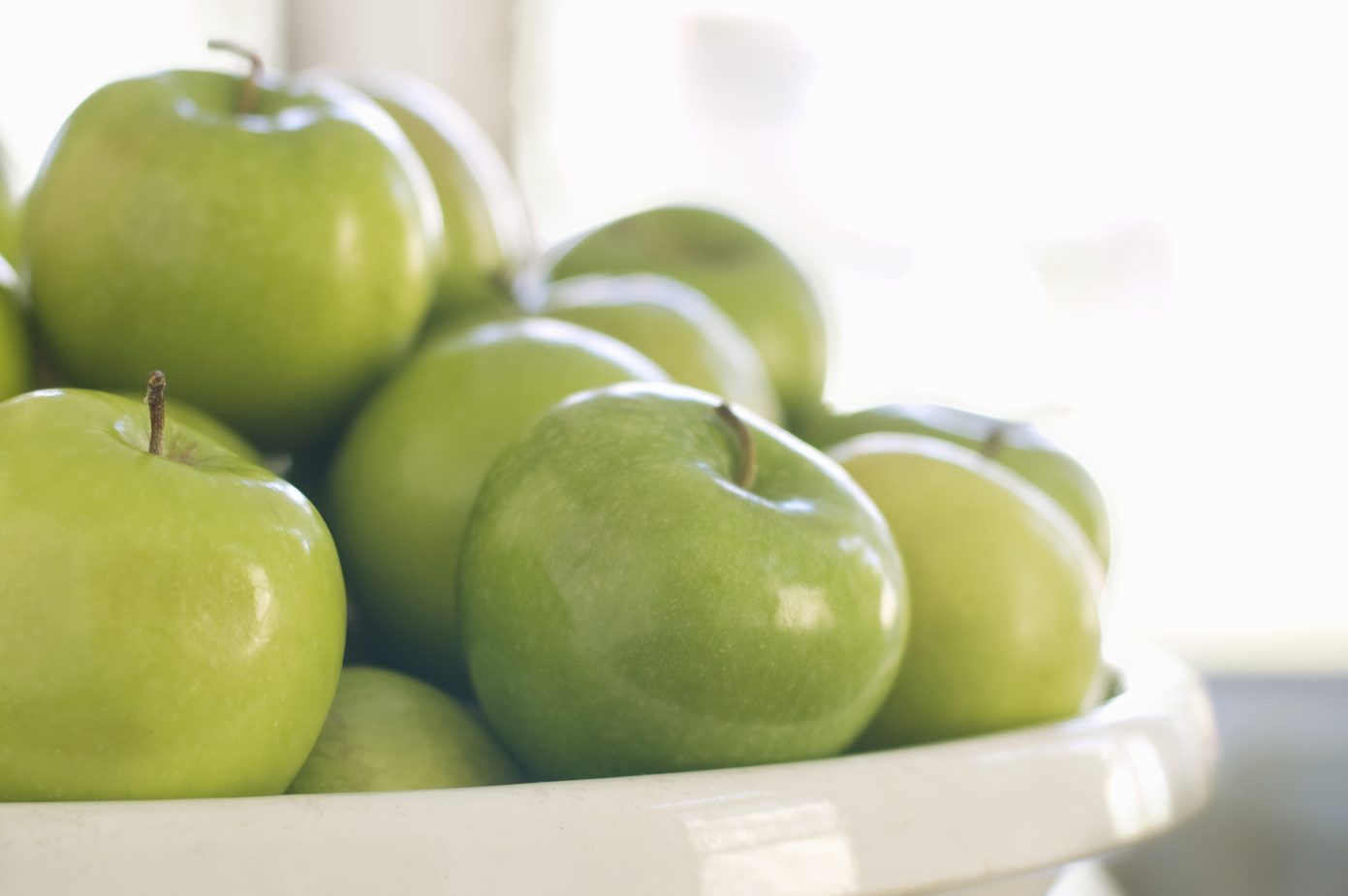According to registered dietitian Lauren Harris-Pincus, it's all about how and when you eat the apple.

Are Apples Good for People with Diabetes?

They say an apple a day keeps the doctor away, but does that sentiment hold true when it comes to people with diabetes? Thankfully, yes—apples are a great choice for anyone, whether they have diabetes or not.
“Apples are a nutrient-rich food with antioxidants and fiber that play a delicious role in an overall healthy diet,” says Lauren Harris-Pincus, MS, RDN, founder of NutritionStarringYOU.com and author of The Everything Easy Pre-Diabetes Cookbook.
Thankfully, it doesn’t stop at apples—people with diabetes can eat most fruit worry-free.
Apple Nutrition Facts
As you might imagine, apples are chock-full of healthy nutrients. A medium apple has about 100 calories with 25 grams of carbohydrates and 4.4 grams of fiber, both soluble and insoluble; fiber helps slow down the digestion and absorption of carbs. “Pectin is a soluble fiber that can help to lower the LDL or bad cholesterol and also to contribute to gut health,” says Harris-Pincus.
“Apples are also a good source of vitamin C and pack powerful phytochemicals/antioxidants including quercetin, catechin, chlorogenic acid and anthocyanin,” states Harris-Pincus.
If you’re thinking about peeling your apples, Harris-Pincus says to think again: The skin contains most of the antioxidants and about half of the apple’s fiber, so leaving it on is a good idea both nutritionally and to decrease the potential rise in blood glucose.
And if you’re wondering which variety of apples is healthiest, just focus on whichever ones you like best—apple varieties will vary slightly in their carbohydrate content but overall, the difference is not significant. Do pay attention to size, however, as bigger apples will contain more carbs.
Will Apples Raise Blood Sugar?
Yes, any carbohydrate-containing food will raise blood sugar. “Since they are very low in fat and protein, nearly 100% of the calories in apples come from carbohydrates that can potentially raise blood sugar,” says Harris-Pincus. “But the key is consuming them strategically, so you can reap all the health benefits without a blood sugar spike.” More on smart apple-eating strategy in a minute (spoiler: pair it with protein and fat).
Can Apples Lower the Risk of Diabetes?
Possibly! Epidemiological studies have linked the consumption of apples with many health benefits—including a reduced risk of some cancers, cardiovascular disease, asthma and diabetes. In fact, a 2019 meta-analysis of multiple studies including 339,383 participants found that apple consumption may significantly decrease the risk of type 2 diabetes.
Fun fact: Apples aren’t the only carb that may be beneficial to those with diabetes. Research shows that people with type 2 diabetes who regularly eat moderate amounts of brown rice have better blood sugar control after meals.
How to Eat an Apple if You Have Diabetes
“The best way to manage blood sugar is to eat carbohydrate foods, like apples, paired with a source of protein and heart-healthy fats which will slow the digestion and absorption of the meal/snack and temper any rise in blood sugar,” explains Harris-Pincus. “Also, there is research to show that our bodies tend to handle carbohydrates better earlier in the day vs. later in the evening. So adding an apple to your earlier meals/snacks vs. right before bedtime may result in a better blood sugar response.”
Here are some ideas for including apples in blood sugar-stabilizing combos:
- Pair a small apple with a tablespoon or two of peanut butter, almond butter or sunflower butter.
- Dice an apple into small bites and stir into plain Greek yogurt with cinnamon and a handful of nuts.
- Blend an apple into a smoothie with milk/nut milk, a scoop of protein powder and a tablespoon of healthy fat—like chia seeds, flax meal, hemp seeds or nut butter. Add apple pie spice for a fall-flavored treat.
- Mix sweet with savory and add thin slices of apple to a grilled cheese sandwich using high-fiber, whole-grain bread.
Apples can also be a great ingredient for dessert, so be sure to check out these diabetic-friendly apple desserts.




















